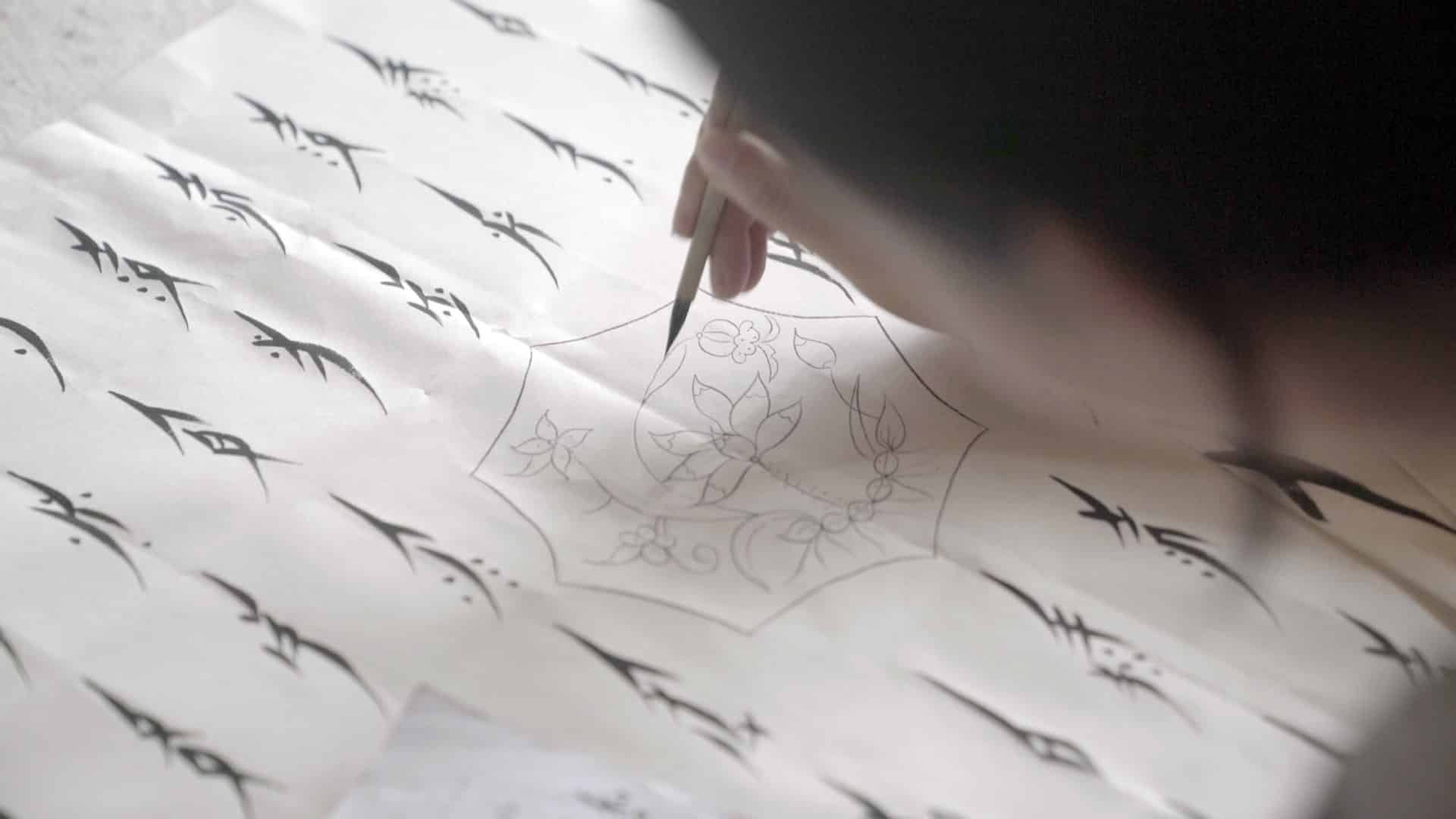




Dir.: Violet Du Feng; co-dir.: Zhao Quing; Documentary with Hu Xin, Wu Simu, He Yanxin; China 2022, 89 min.
A fascinating new documentary sheds light on a secret language used by Chinese women to communicate with each other imprisoned in their homes before Chairman Mao’s “Big Leap Forward”
First time director, producer and co-writer Violet Du Feng has, with co-director Zhao Quing (Please remember Me) offers up a passionate expose showing how even nowadays Chinese women are still hemmed in by traditional roles despite a more commercialised society. The sisterhood’s covert means of contact away from the prying eyes of the male population was made possibly by a clandestine language – Nushu was their only way out.
Hu Xin, a woman in her mid 30s, takes lessons in Nushu from He Yan Xin, the last living Nushu mistress of the art. Xin works in the Nushu Museum in Jianyong Township, formed by seven villages where she met her ex-husband after joining the National Youth Council. Her parents were complicit in China’s male-dominated society, wanted her to marry and have children rather than a career. But her spouse was brutal and even made her abort a six-month old daughter, because he wanted a son.
Even Xin herself seems to fall in with this traditional view, seeing herself as having failed as a woman and mother. Yan Xin remembers boycotting sex with her husband for several years, talks about a time when it was impolite to look at a man while doing the housework. “We were merely slaves”, she recalls. Her husband beat her up but never touched her face, and forbade her to cry within earshot of his cousins who lived next door. Yan Xin sang Nushu lullabies to her children, and kept up a lengthy correspondence with other repressed women.
Wu Simu, a music teacher who also teaches Nushu songs and dances, thought her Shanghai-based fiancé Simu was quite progressive but it soon turned out that all he wanted was a workhorse who would hold down a job and look after the children single-handed. After all his own mother worked the land all day and did the household chores in the evening. He orders Simu to give up Nushu – seeing it as worthless hobby that detracts her from earning more in a proper job. Simu, to the great disappointment of her parents, gives him the push.
Talking about commercial values. both Simu and Hu Xin are involved in an exhibition featuring Nushu products in Macao where local politicians take the position that Nushi products would have no future without the adherence to market trends. They also considerate the language to be subversive, undermining the ideology of the state by diminishing the fundamental the female tenets of Obedience, Acceptance and Resilience.
A $300 mobile ‘phone capable of translating from Mandarin to Nishu is not exactly selling like hot cakes either. Simu confesses she is frustrated that men are still “the Heaven”. Hu Xin and Wu Simu wanted the exhibition to be called “Women for Modern Times”, but the politicians insisted on “Modern Women” ie ‘Modern’ had to precede ‘Women’. So the future of this secret language Hu Xin and Wu Simu think about the future of Nushu at schools, the State bureaucrats prefer “Cross branding”‘ which is very popular. In their studio, Hu Xin and Wu Simu plan for participation of Nushu artists in an exhibition about Women artists – not video games.
Du Feng weaves together a rather pessimistic image of Women’s rights – past and present – in China. DoPs Feng Tiebing and Wei Gao show a technocratic state of the art, but in the country side the rules of the last century are still intact. And for all the progress in technologies: the cut-throat business of competition has no place for subtle subjects like Nushu. AS
BFI LONDON FILM FESTIVAL 2022 | 5 – 16 OCTOBER 2022